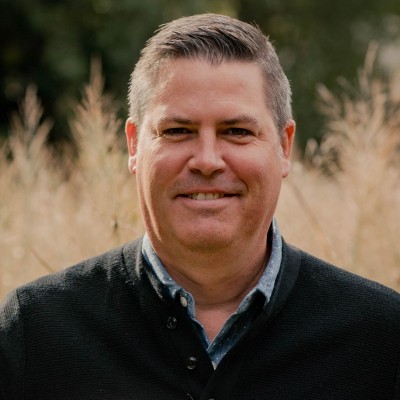Predictive LLC, a University of North Carolina at Chapel Hill startup, was recently named as 1of 20 winners of the National Institutes of Health Complement–ARIE Program’s prize for its research understanding gaps regarding prescription medication for pregnant women and fetal toxicity. Founded in 2019 out of Dr. Alex Tropsha’s lab at the UNC Eshelman School of Pharmacy, Predictive utilizes innovative machine learning models and computational methods to understand how pharmaceuticals, chemicals, and personal care products affect people. Innovate Carolina recently spoke with Kevin Causey, Predictive CEO and co-founder, to learn more about Predictive’s entrepreneurial journey and the impact of its groundbreaking work.
Tell us about Predictive.
Predictive is a company we founded in Dr. Alex Tropsha’s lab at the UNC Eshelman School of Pharmacy. While many folks in our industry may think about AI or machine learning and associate it with compound development in drug and medical device discovery, our focus is on improving the testing process. Our goal is to see how we can make the testing paradigm quicker and more scientifically relevant.
What sets Predictive apart?
Our work is based on pharmaceuticals, medical devices, chemicals, among other things. Our differentiating factor is the models we work with. They are as varied as the different devices, studies, and components we get involved with. We primarily focus on knowledge graphs and machine learning, along with the several implications in this that are coming out of the UNC Eshelman School of Pharmacy.
How do studies using predictive software compare to traditional studies?
Predictive software is rooted in traditional studies. We utilize them, specifically the data generated from STAP (Standardized Testing for Adverse Properties) graphs. However, what is untraditional about Predictive is what we do to the molecule. Once it has been input into our software, we provide predictive outputs about how that molecule would perform in various tests.
As AI and machine learning are rapidly developing industries, how does your team stay at the forefront of advancements in computational toxicology?
As a small business, staying at the forefront is definitely a challenge. However, we prioritize collaborating with our university partners who are often more advanced in their research. With fast-moving industries like pharma, AI, and machine learning, it’s all about remaining cognizant of the data that needs to be protected for the pharmaceutical or medical device companies. It’s a delicate balance that we strive for with staying at the forefront of AI advancements and keeping in stride with pharmaceutical and chemical sectors.
How do you collaborate with regulatory bodies or other stakeholders to align your software with industry standards and requirements?
We’ve been fortunate. Alex (the co-founder) and I have experience working within the federal government on alternatives to animal testing, which has led to valuable collaborations. The entire structure of Predictive is to work with regulatory bodies from the beginning, and when we started the business, we prioritized their input on what we were doing to make sure we had that visibility from them. In laying this groundwork, we’ve been able to reap the rewards through our grants and contracts. Not only is this collaboration great for us as a medical devices and pharmaceutical company but also having that technical know-how to submit things in a format well aligned with the FDA and EPA.
This collaboration is very much an ongoing effort, and as our company grows, we remain focused on serving multiple organizations, each with different priorities—such as the EPA’s emphasis on safety and the FDA’s focus on efficacy. Understanding these differing paradigms is essential to our mission.
If you were to restart the company today, would you do anything differently? Why or why not?
Absolutely. For both Alex and I, this was our first venture as entrepreneurs, and we faced a steep learning curve. We learned a lot of lessons through the school of hard knocks. Working with KickStart Venture Services was invaluable, particularly in terms of funding and connecting with people who could help. This included everything from proposal writing to accounting—essential skills that were challenging for us as first-time entrepreneurs. We are committed to keeping the business ours and growing it at our own pace. To stay self-funded is our plan for the next few years.
I do wish we had brought on more collaborators earlier. We simply didn’t fully understand the process and how to navigate it at first. It’s been roughly five years now since we’ve started. I’ve been doing this full time for about a year, and one thing I would’ve done differently is to just go full time earlier. Just take that leap.

“It’s fascinating how connections can shape your journey. The support from the Carolina community, including entrepreneurs in residence, has been invaluable.”
Kevin Causey, Predictive CEO and co-founder
How did you connect with KickStart Venture Services?
In a lot of ways, this is a story about how your network can really influence your career. I spent the first 15 years of my career working with companies focused on alternatives to animal testing. During that time, I worked with Dr. Kailas Thakker, who is the wife of Dhiren Thakker, who was dean of the pharmacy school at that time. Dhiren and Kailas had been friends with Alex for years and suggested we meet. It was more of a favor to connect us than anything else.
When we met, I jokingly suggested, “Why don’t you start a business? There’s a real need for these skill sets, and no one is currently providing them.” He looked at me and said, “I don’t know how.” A week later, we decided to move forward and quickly received support from KickStart Venture Services, who helped fund our first grant, a $50k KickStart Commercialization Award. Since then, we’ve collaborated closely, and two years ago, using KickStart’ grant writing support program we secured an SBIR grant that funded some of our software development.
It’s fascinating how connections can shape your journey. The support from the Carolina community, including entrepreneurs in residence, has been invaluable. They have been strong advocates for us and even partial owners of the business. UNC is one of our biggest cheerleaders and also a partial owner in our business.
What advice do you have for entrepreneurs entering similar fields?
One key piece of advice I share with people we’ve invested in or worked with is to surround yourself with passionate people who are committed to the mission of your business. In addition, consider bringing in more team members than you think you need. Especially to my technical folks, I recommend finding young, hungry business minded colleagues willing to work for equity rather than a high salary—people who are excited about the opportunity to create something significant rather than just working for a large company.
Also, it’s important to be open to asking questions. Never be afraid to ask a question. You’ll be surprised by how much help others are willing to offer, often for free, simply because of shared connections or interests. The more you help others, the more it tends to come back to you—often in ways you least expect. If you approach your network with a spirit of collaboration and support, things will usually work out in your favor.
How have partnerships at Carolina contributed to Predictive’s success?
I want to mention a thank you to our partners at UNC. As a proud NC State graduate, my work with Predictive has made me deeply appreciative of the work, opportunities, and partners that we’ve had here. Carolina was instrumental in our journey; their belief in our mission and early investment were invaluable.
We are continually pushing the envelope to expand our models and leverage technology. If we can get a compound or medical device to market a year earlier, that’s a significant advantage. Even if we can bypass one in vitro study or a big animal study, that would be considered making huge strides in the industry. We can offer pharmaceutical companies a year’s head start on patent protection, which is incredibly valuable not only from a company perspective but also for patients.
Additionally, I have to take a moment to shout out how fortunate I am to work alongside Alex and his team, including co-founders Dr. Eugene Muratov and Dr. Vinicius Alves, who worked in Alex’s group. They are not only exceptional scientists but also wonderful people who foster a collaborative environment. Their dedication to finding solutions that benefit everyone is truly admirable.
What’s next for Predictive?
In the next six months, our focus will be on advancing our mission. For the most part we want to finish up our grants, finish projects, and commercialize the things that we have. We’re really lucky to have some wonderful consultants and collaborators, along with the folks at UNC to continue working with. We’ve received positive scores on several grant applications and recently secured a Phase 2 grant, along with a Phase 1 SBIR contract. We’re committed to putting in the necessary work to complete these projects.
In addition, we are focused on commercialization and getting into the market. We currently have our first two installations at major medical device and agricultural chemical companies, and the feedback we receive from them will be crucial in determining how much additional work is needed to prepare for a larger market rollout. As we move forward, we’ll also be looking to hire a sales and marketing team to gear up for our next phase of growth.

 | UNC-CH
| UNC-CH



